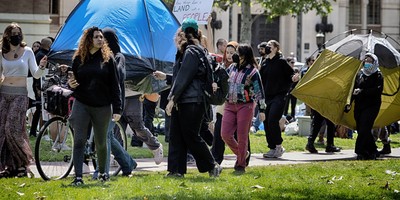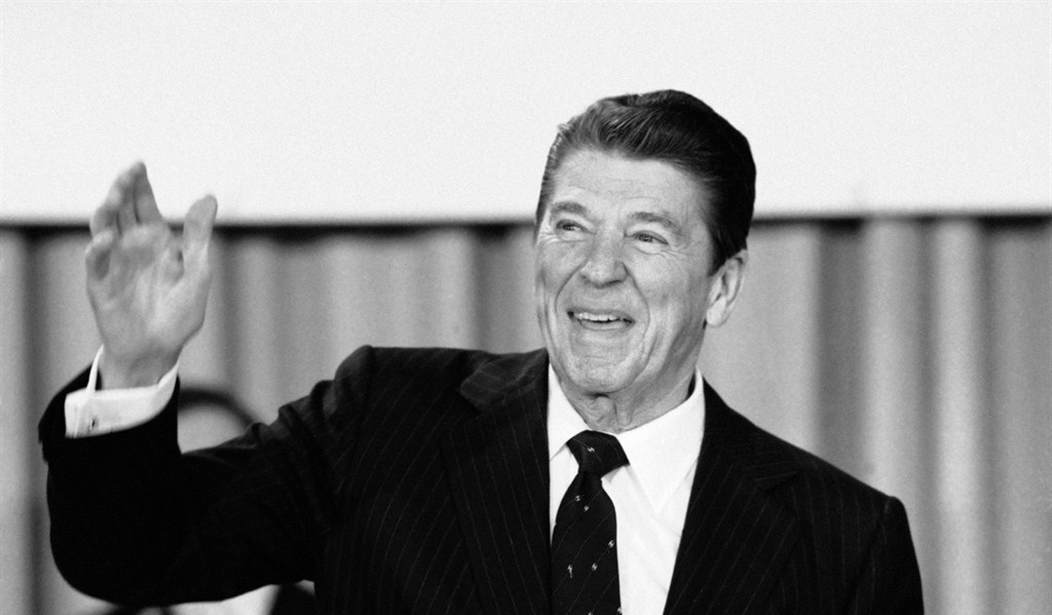WASHINGTON - Barack Obama was named the worst president since World War II, according to a survey of the American people who were asked to rate the nation's chief executives over the past 69 years.
The Quinnipiac University Poll released last week found that one third of its respondents picked Obama as the all-time worst, ahead of George W. Bush in its disapproval.
Obama's unpopularity will come as no surprise to those who've been closely following his big spending presidency. But the really big news was the man who topped the best presidency list: Ronald Reagan.
Reagan championed entrepreneurial capitalism, cut taxes, expanded free trade agreements and U.S. exports, promoted energy development, fought wasteful federal spending, beefed up our defense, began development of the anti-missile shield, ended a recession in two years, accelerated economic growth, fueled job creation and new business formation.
And he restored America's can-do spirit of optimism about the future.
Obama has devoted his presidency to raising taxes, beating up big business, playing class warfare, growing the government, stalling trade deals, cutting defense, and prolonging a recession that remains stuck in a slow growth recovery and a declining labor force.
Over all of the presidencies I have covered in the past 40 years, I got to know Ronald Reagan best on a personal and professional level, from the campaign trail to the Oval Office.
We first met several times in Washington at his room in the Madison Hotel where we talked about politics, budgets and a wide assortment of other issues for an hour or so.
Reagan had completed two successful terms as the governor of the largest state in the union and had his eyes on the White House. Vice President Gerald Ford had just become president, after Richard Nixon resigned, and had began plotting his 1976 campaign for election in his own right.
Reagan, who started campaigning across the country, was planning to challenge Ford for the nomination. And in that first interview, he began calling for a more aggressive approach to dealing with the nation's problems.
This was no time for "pale pastels," Reagan said. This was a time for bold policies that called for cutting spending and going after wasteful or needless programs. Now was the time to unleash the power of the American economy that was being held back by job killing taxation and costly government regulations.
At this time, Reagan was being all but ignored by the national news media. I was Washington correspondent for United Press International, looking for a story and beating my competitors, and I always asked if he had any other interviews on his schedule while he was in town. No, he'd reply. "Just you."
The Washington Post, by the way, was across the street from the Madison. But their reporters dismissed the former governor as just kooky, right wing politician who had little chance of defeating Ford for the nomination or becoming president.
One of the political rules Reagan had long embraced was to "never speak ill of a fellow Republican." And during his campaign for the nomination, he refused to criticize Ford.
But that vow ended in an interview I had with him as we were flying into Los Angeles after a week of campaigning. Ford was running blistering TV attack ads against Reagan, charging he would get the country into a war.
At first, Reagan was very reluctant to get into a tit-for-tat with Ford, until I read the full ad copy to him. And that's when his Irish temper exploded.
Calling Ford "a crybaby," Reagan accused him of using "divisive" and "arm-twisting tactics." His "spirit of unity" was strained, he said, and he warned Ford that he was "playing with fire" that threatened to destroy their party.
"And those phony war ads.This angered me," he said, adding, "Sometimes I think he'd rather win a convention than win the election."
Reagan came within an eyelash of the nomination. But on the long flight back to California, he shrugged off his loss and told his dispirited top aides to prepare for the next campaign.
Reagan decisively defeated Jimmy Carter in 1980, with the support of "Reagan Democrats", and then went on to stun the Washington establishment and the national news media with one policy-making success after another.
He got his tax cuts through Congress with Democratic support, and much of the rest of his agenda, too. In foreign policy, he didn't mince words about the dire Soviet threat, making it clear that the Kremlin's Communist bosses faced a determined foe. "They cheat and they lie," he bluntly told a White House news conference.
By 1983, the battered economy soared out of its deep recession and Reagan was at the peak of his popularity. In 1984, he carried 49 states.
I had two lengthy Oval Office interviews with him during his presidency, the first shortly after his recovery from a nearly-fatal assassination attempt that lifted his presidency to heroic proportions.
When I asked how he was doing, he replied "Not bad, considering the alternative." He told me how he had been doing weight exercises to rebuild his chest measurement.
A low point came when budget director David Stockman, in a series of interviews with a Washington reporter, raised doubts about Reagan's budget policies.
But Reagan stuck with his budget chief, telling me that "the real cynicism and the doubts in the plan were written by the author and [were] his interpretation."
Still, getting his proposed budget cuts always remained a tough challenge over the course of his presidency. But it wasn't for lack of trying.
Stockman sought budget cuts across the landscape of the government, but, in a moment of deep frustration, told me he was persistently blocked on Capitol Hill, not only by the Democrats "but by Republicans when it comes down to parochial interests." And he named names.
When one of our interviews was over, Reagan drew me to the side of the Oval Office and confided, "You know, just between us, one of the hardest things in a government this size.... no matter what our people way on top are trying to do... is to know that down there underneath is that permanent structure that is resisting everything you're doing."
























Join the conversation as a VIP Member